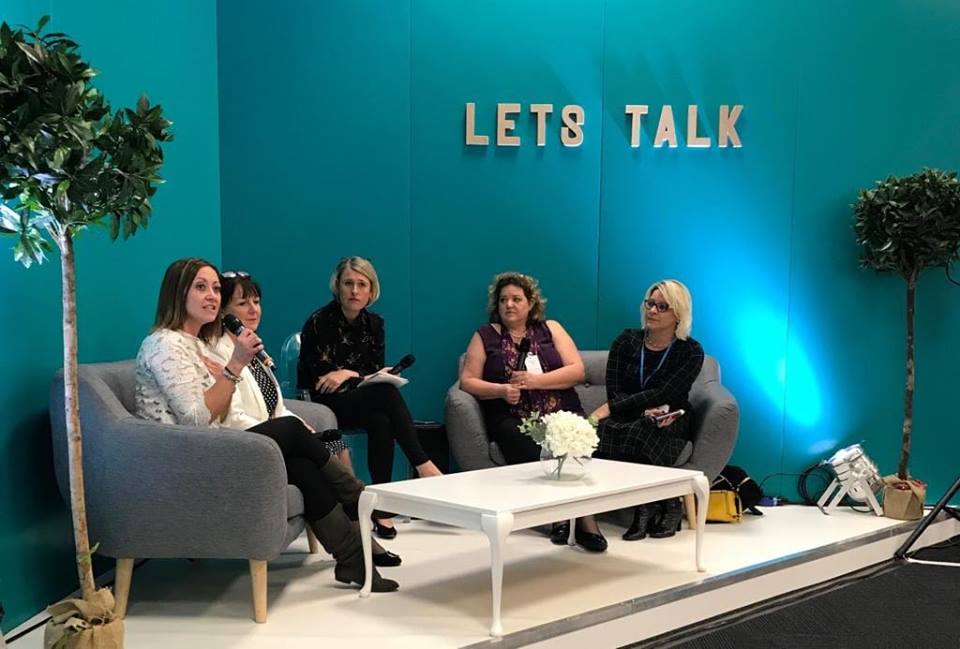
The Importance of Fertility Support Groups

Why the HFEA Guiding principles are so important in understanding emotional support for patients
January 31, 2019
Men – How to support your partner through IVF
March 1, 2019Research has shown that women struggling with infertility experience the same level of depression as women with Cancer, HIV and heart disease, and a shocking 42% of respondents in a recent Fertility Network survey reported having felt suicidal at some point.
That meant approx. 330 respondents felt suicidal at some point, and if you apply that percentage to the number of people going through IVF in a year that would mean there are potentially 21,000 women feeling suicidal due to infertility every year. And that number doesn’t include those that are not currently having treatment.
You grow up believing that it is easy to get pregnant and that as soon as you want a baby it will happen. For most people this is the case, so they can’t possibly understand the desperation and longing that those struggling to conceive are feeling.
Because of this lack of understanding, they just aren’t able to fully support someone with infertility. They try to help and offer comfort with comments like ‘don’t worry, it will happen’ and ‘stop thinking about it’, but to someone struggling month after month to get pregnant these words offer little comfort and almost trivialise the heartache they are feeling.
There is a huge lack of awareness and understanding of the emotional impact by anyone who hasn’t been through it, and the only people who can truly empathise are those who have experienced the struggle themselves.
This means that many people suffer alone, not wanting to tell family or friends for any number of reasons (embarrassment, privacy, other’s lack of understanding).
This makes the journey a very lonely one, where sufferers question their mental stability because of the thoughts and feelings they experience. They long for someone other than their partner to talk to, someone that completely understands, someone they can confide in.
Support groups can be invaluable when going through fertility treatment. Treatment is extremely intense, you are pumped full of hormones and you analyse every symptom to prove success or failure of treatment. Knowing other people that have experienced the rollercoaster of treatment (or are going through it as you are) can make the process less scary and gives you someone to talk to.
The Fertility Network survey showed that 28% of respondents sought support from Fertility Network UK and 45% from another organisation or online support (Facebook groups, Twitter, and fertility blogs).
Only 17% attended a support group but 52% would have liked to attend had there been one nearby.
There is clearly a demand for more support, but unfortunately this support is very limited in certain areas. There is a real need for an increase in awareness of how infertility affects sufferers emotionally and mentally, so more support can be offered to them – by clinics, local charities, friends/family.
After struggling with infertility and going through IVF myself I set up a support group in my local area and the feedback I have received about how it is helping emotionally has been great. The group is full of amazing people who are supporting each other through the worst time in their lives, whilst struggling themselves, and they are forming strong friendships outside of the group.Quote from a support group member
"Finding the support group that Sarah Banks set up in West Yorkshire proved invaluable to me, in more ways then I ever imagined when I nervously walked into the support group for the first time, trying not to make eye contact as I had become accustomed to each time I walked into the fertility clinic waiting room.
I chose not to tell many of my friends or family when we embarked on our second round of treatment as they had previously highlighted that they didn't truly understand and would often unintentionally say things that hurt or belittled what we were going through. Being in a room with people who were going through the same rollercoaster and who truly understood was such a relief. It became the only place where I felt I could truly be myself and openly talk about some of the emotions that I found difficult to admit, even to myself, such as the uncontrollable jealous and resentment when yet another friend announced their pregnancy.
But the benefit that took me by surprise was the light-hearted side of the support groups. There was often humour that only others who have been through the undignified procedures could get away with. This took away some of the intensity of the treatment and there was many a time I would find myself smirking when someone's funny comment sprung back to my memory whilst in an uncomfortable situation, usually whilst laying on the clinic chair, legs spread, bum hanging out.
And it also broke the unbearable silence of the waiting room. Seeing a friendly face amongst the eyes down of the waiting room and having the supportive hug reminded me that I'm not alone and we are all so strong."
How support groups help
You can talk openly and honestly without fear of judgement – you know that you can be completely honest without the group thinking badly of you, they are very likely to be feeling the same.
Validation of feelings (show you that you are normal) – when you are questioning if you have something wrong with you mentally because of the thoughts you are having, it gives a lot of comfort to know that you are normal and that your thoughts are normal too.
Know you are not alone – with a support group beside you, you know you will never be alone, if you are having a bad day you can turn to them and they will be there for you with encouraging words and virtual hugs.
Unquestioned support – When you tell the group you are feeling upset because another friend has announced their pregnancy they just get it and will have your back, without questioning your opinion.
Friendships outside of the group – going through a traumatic process/journey together gives a shared understanding and a strong bond. I have seen quite a few friendships started in my group, which is great. When friends have then had positive results from treatment together they are then supporting each other through pregnancy after IVF.
Waiting room buddies – going to a group/online group in your local area means you get to meet lots of other people in your area also going through treatment. Chances are you will be in the waiting room at the same time as someone else from the group, so you can support each other while you wait and it reduces the awkward and nerve wracking silence of a waiting room full of people all looking at the floor while feeling the same emotions. I’ve seen this happen with my group and the women fed back that it really helped seeing a friendly face while waiting for their pregnancy test appointments.
Information sharing – groups can be a great source of information – tips for keeping calm, coping with the TWW, add on procedures. Support group members have reported that they have learnt a lot of useful information at the group that has helped them feel more informed. I also invite guest speakers (as do many other groups), which give a direct source of helpful info. It is just important that members are careful not to give medical advice, as only qualified medical professionals should be doing that.
I love that the people in my group are so supportive of each other, and that it is making a difference to their emotional state whilst going through this difficult journey.
The future of support groups
I would like these groups to help members in more than just a supportive capacity. My vision is of creating a group that allows and encourages more than just sharing experiences and asking questions. I would love for the groups to help members with their mindset, to improve the journey while they are on it, and also help them take back control of their lives.
My national Facebook support group called Surviving infertility is doing just this.
I share information to:
- Keep members feeling more positive, with tips and ideas on how to do this.
- Reduce stress and anxiety brought on through infertility.
- Challenge the groups thinking to help them cope better going through treatment.
- Encourage engagement with other group members where they are comfortable to do so, to support each other on the journey and keep each other going.
- Look at other areas of their life where they are unhappy, to make changes to improve things and reduce overall stress and anxiety.
I also invite guest speakers to answer questions from the group (anonymously) so they can find out any additional information they need.
I hope that this increased level of support will help people make small changes to feel more positive, less anxious and take control of their fertility journey.
If you (or your patients) are struggling with infertility and don’t have anyone you can talk to about it that truly understands, then I would definitely look up whether there is a support group in your local area (the Fertility Network has a list of them on their site). There are also a number of online support groups for people struggling with infertility and going through IVF.
If you would like more support through your journey, you can join my free Facebook support group Surviving infertility by clicking the link below.



